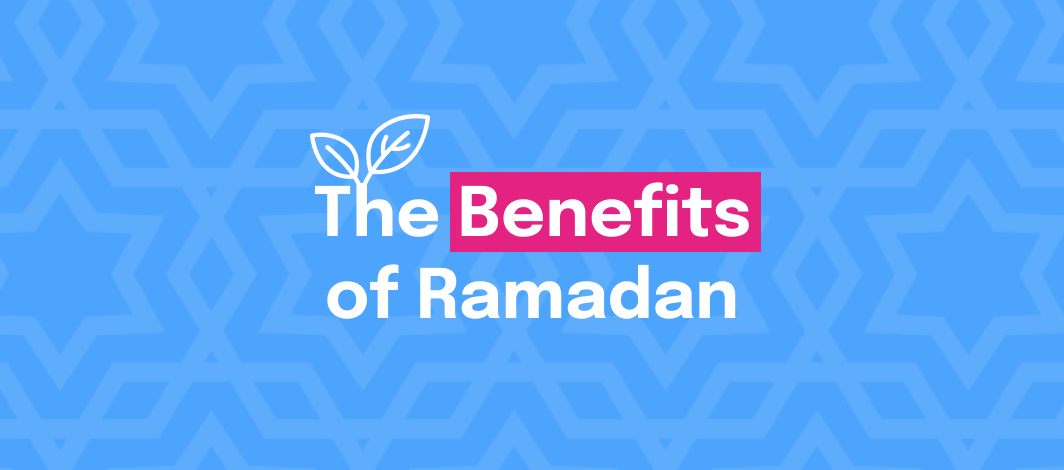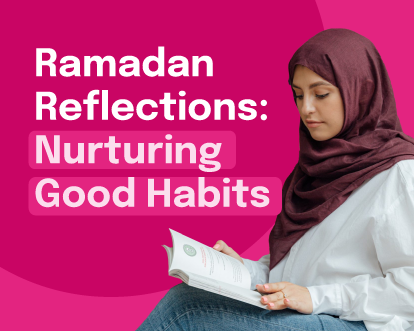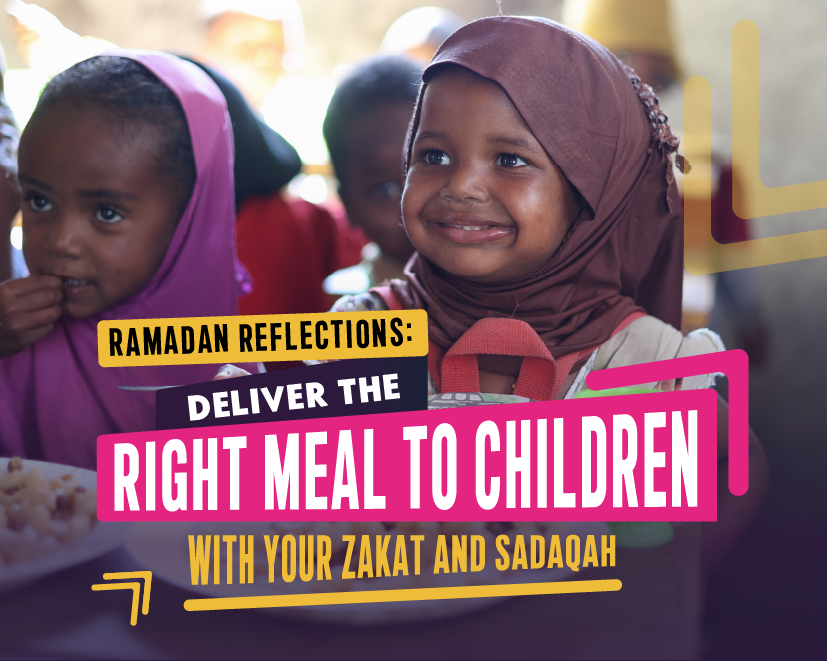Alhamdulilah – it’s Ramadan. But did you know the holiest month is also one of the healthiest?
In the holy month of Ramadan, Muslims around the world are expected to fast. After all, it is one of the key pillars central to the Islamic faith. Aside from suhoor and iftar, Muslims fast from dawn to dusk throughout Ramadan.
Although the prospect of having to go without food or drink all day can seem daunting, it has a whole range of benefits: physical, mental and spiritual.
So if ever you feel as though you’re really being tested during your fast, focus on these benefits and pray to Allah (SWT) to guide you.
Health Benefits of Fasting
Whilst Ramadan is primarily a period of spirituality to strengthen your connection with Allah, there are a surprising number of both mental and physical health benefits of fasting.
Physical Benefits of Fasting
Full Body Detox
During suhoor early in the morning or iftar at night, it’s important to make wise choices. You need to prepare your body in these times for the fast that comes once the sun rises. Fortunately, these wise choices encourage you to become much healthier.
Dehydration is a risk while fasting, so it’s important to make the most of the brief opportunity before sunrise. Instead of the temptation to go for caffeinated or carbonated drinks you might be used to, take the healthy route – choose water. Drinking water will maximize your hydration to get you ready for the day ahead.
When picking food to eat during suhoor, it’s wise to pick food which gives you energy over a slow period of time. Avoid glucose-heavy food – that’ll give you a great but all too quick burst of energy followed by a crash you’ll struggle to recover from while fasting. Instead, pick healthier food which will help sustain you throughout the day. Dates are a wonderful idea; they’re rich in fiber, nutrients and vitamins with about 31 grams of carbohydrates.
And it’s not just fasting in Ramadan that helps with the detox. Muslims are also expected to give up bad habits, such as smoking or unhealthy food binges once the clock hits Maghrib.
All this contributes to cleanse your body completely, with water and healthy eating helping to get your body back into the condition it should be. Toxins in the fat deposits are cleaned out to make room for healthy nutrients. Fasting also increases the hormone adiponectin to make metabolism even more efficient to absorb more nutrients.
Regulates Cholesterol
Fasting and abstaining from unhealthy food can also help in regulating cholesterol levels. This is because fasting affects the lipid profile which results in reducing blood cholesterol. That means a reduced risk of heart disease, heart attacks, strokes and other diseases.
Resets Appetite
It’s easy to get used to eating a large amount of food whenever it’s available. But what happens when there’s not a seemingly unending supply of food? At first, you’ll feel hungry – obviously. But the human body is remarkably adaptable all thanks for Alla’s magnificent design. Before you know it, you’ll get used to eating less. Your digestive system has a chance to rest, your stomach shrinks in size and your appetite will reduce.
Mental Benefits of Fasting
You usually associate food with having more of an effect on your body than your mind. But you are what you eat and food can affect your brain as much as your body. Just like fasting can give you some physical health benefits, it can also give you some mental health benefits too.
Supercharge your brain to be happier and more focused
Although your brain needs energy to keep ticking along, fasting can help supercharge your brain, making you much happier and more focused than usual. It increases the growth and development of brain cells, allowing for sharpened senses and improved mental clarity.
Once you’re used to the fasting, it releases more endorphins than usual that help you to be more alert than happy. This lets you channel your focus towards being more productive or spiritual, without the distraction of food.
The brain really is incredible but fasting can help it cope better with stress and adapt to change more easily. Fasting will also boost your mood, memory and ability to learn.
Emotionally Fulfilled
Some of the happiest people in the world attribute their happiness to family and the emotional fulfilment they provide. As well as being a time to connect with Allah, Ramadan is also a time to connect with family, particularly when breaking fast with iftar. Spending time with family can give you feelings of love and comfort that have wonderful effects on your mental health.
Spiritual Benefits of Ramadan
Since Ramadan is the holy month in which the Quran was revealed to Prophet Muhammad, spirituality is the most important aspect of fasting. Although the immediate benefits of fasting on spirituality aren’t as obvious as the health benefits, there are certainly ways in which fasting can benefit your spirituality during Ramadan.
Strengthen Your Connection to Allah
Ramadan’s core aim is to grow spiritually and become closer to Allah. By abstaining from food you are able to focus more on reading the Quran, praying and remembering Allah. In fact, your mind will be in a more meditative state because of your fast, allowing you to pray and reflect more.
Fasting also strengthens your control and self-restraint. In doing so, you’re allowing yourself to place your trust in Allah to provide you with any sustenance you need, spiritual or otherwise. This is made even more effective by abstaining from your usual vices and bad habits; these no longer need to distract you from worshipping Allah.
Help Those in Need
Ramadan is an opportunity to really put the needs of others above your own. With Zakat and Sadaqah, it’s always beneficial to donate to charity or do good deeds – but it’s emphasized so much more during Ramadan. The Prophet (PBUH) told us to feed iftar to fasting Muslims, even of just a drink of water is all you could give. The rewards you receive from breaking someone’s fast multiply your own.
Muhammad (PBUH) himself said “Ramadan is the month of my Ummah.” We should live by his example and ensure we give Zakat and Sadaqah to help other Muslims break their fast this Ramadan.
Make your Sadaqah and feed a school child by clicking here.








